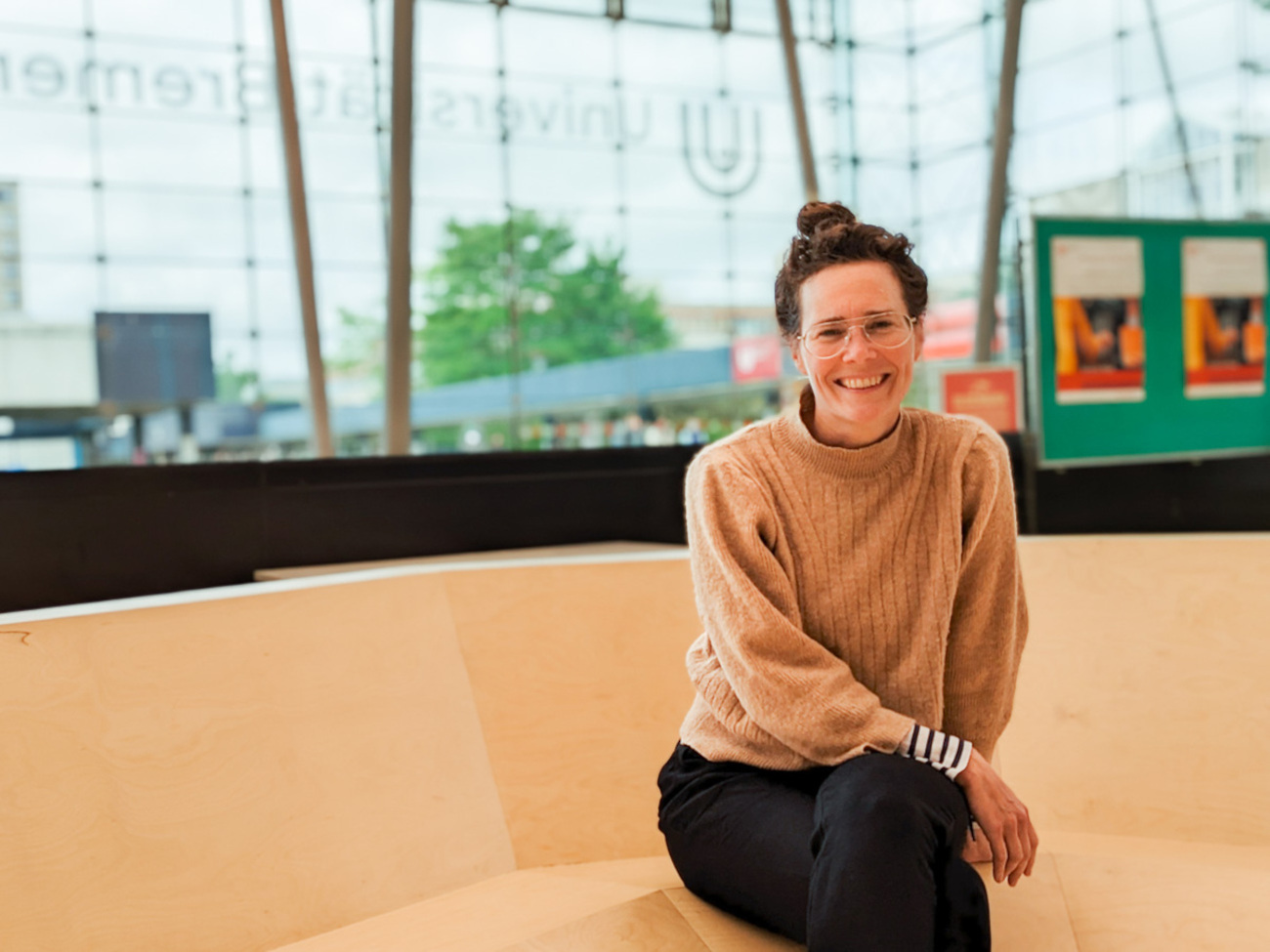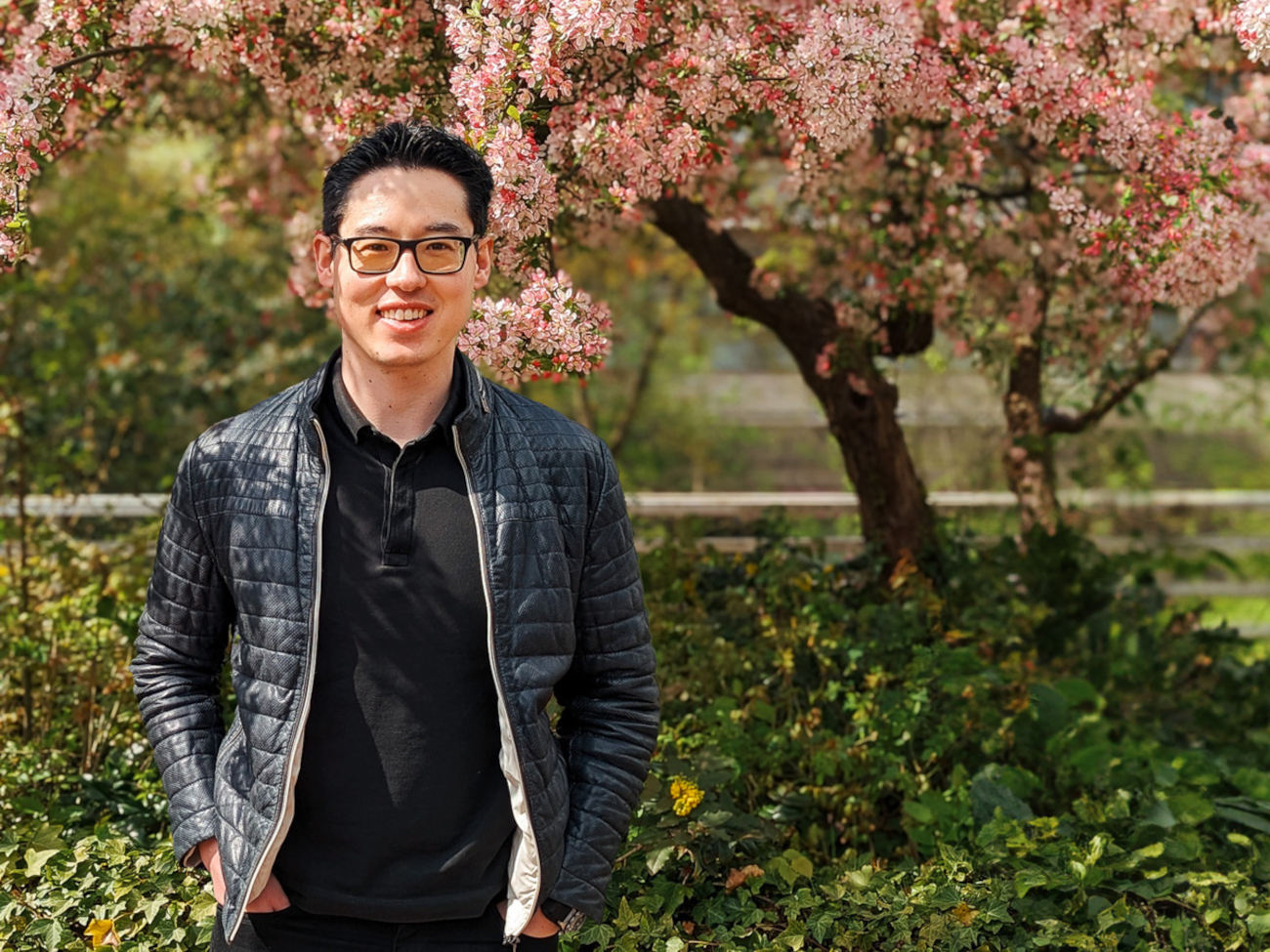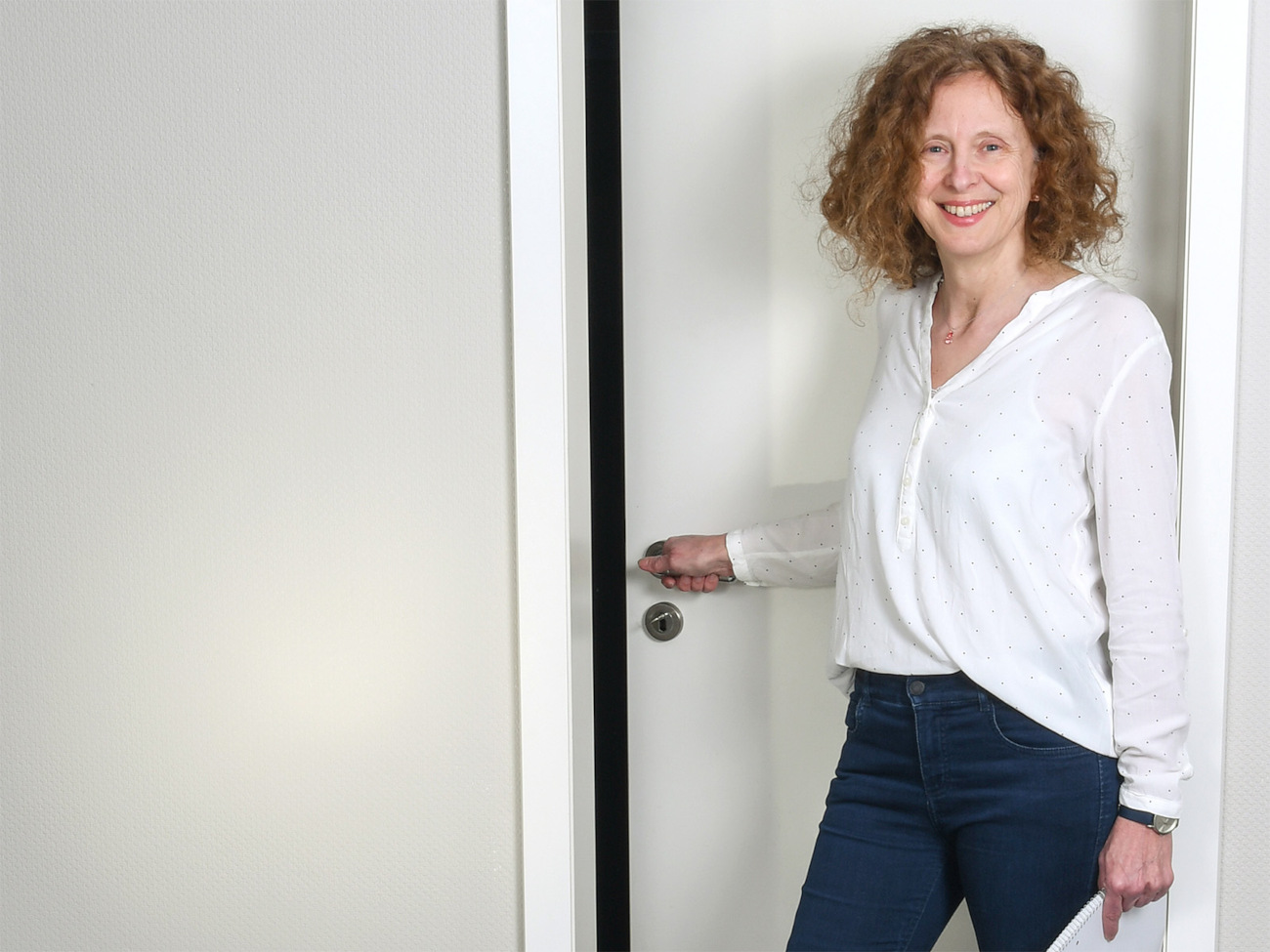
© Lukas Klose
Berninghausen Prize - Where Excellence in Teaching is Celebrated
A look behind the scenes of the Berninghausen Prize: Portraits of three laureates
In 1992, the Berninghausen Prize for Excellence in Teaching was awarded for the first time. It was the first prize awarded by a German university to honor academics for their outstanding teaching. For up2date., we spoke with three former laureates. They told us about their areas of focus, why they were nominated, and what influence the Berninghausen Prize had on their academic careers.

© Universität Bremen
Sarah Lüdemann, Faculty 09 - Cultural Studys
As an independent artist and university lecturer, I am dedicated to contemporary art and its mediation. My research and teaching focuses on “man-machine,” its expression and representation, human structures, as well as their failures and mutations.
The project I was nominated for is titled “other | wise.” Focusing on “the other,” my students and I designed a comprehensive exhibition in two very different locations, accompanied by a fitting supporting program. Some 28 students based their nomination on an open, practice-oriented teaching and learning concept. They appreciated the opportunity to turn their own ideas into reality instead of “just” simulating them. The project helped the students to try out and learn a wide variety of skills, including teamwork, task distribution, internal and external communication, copywriting, and public relations. The implementation of the project allowed them to break away from the usual university structures and this was highly appreciated.
Winning the award is a confirmation of my beliefs and approach to teaching. Despite a curriculum vitae that is not exactly “linear,” I always teach in innovative and unconventional ways. I work in a process-oriented, hands-on, as well as experimental way and actively involve my students, whilst contributing experience and expertise from a variety of fields. These include art and culture, free market economy, as well as school and education. I gained my experience in various countries, including Germany, Norway, England, and Italy. For me, the award is also a recognition of this way of working. In fact, I am the first and so far only teacher at the Institute of Art History, Film Studies, and Art Education to win the Berninghausen Prize. I consider this a special honor.

© Universität Bremen
Dennis-Kenji Kipker, Faculty 06 - Law
I mainly work on IT security law, which covers exciting topics such as cybersecurity, digital resilience, IT strategies, and even international aspects. Very specifically, I focus on global crises, diving into specific analyses of Chinese and US IT law.
I was nominated for a course that coincidentally is also titled “IT Security Law.” It was a pioneering course and brought a new area of law out of research and into teaching in 2017. We wanted to convey practical relevance and shed light on the exciting intersection of law and technology.
Winning this award was an exciting and fulfilling experience. It was refreshing to see that the legal field does not just pass dry laws and that my perspective is shared by others. The award has encouraged me to go my own way and do many things in a different way than is usually done. I find that when issues are brought to the table that don’t always generate unanimity, it gets people thinking. That in turn leads to controversial discussions and that’s what makes it really interesting. There is no doubt that the award has also accelerated my academic career.

© Foto Rosilus
Iris Stahlke, Faculty 11 - Human and Health Sciences
As a habilitated university lecturer, I work at the Department of Psychology, more precisely in the Social Psychology and Occupational Psychology working group within faculty 11. In addition, I am part of the Health and Society Department of the Institute of Public Health and Nursing Research here in Bremen.
Within my work, I place a psychodynamic social-psychological emphasis on the fields of social psychology, occupational psychology, and organizational psychology. A feminist research perspective in social psychology is particularly important to me in order to better understand and analyze the attitudes, demands, and developments of women* and girls in patriarchal structures.
I was honored to be nominated for my course “Foundations, Paradigms, and Ethics of Counseling” for the bachelor’s degree program in Psychology. Using a research-based learning approach, students were able to take my research on “Violence in Teen Relationships – Adolescents’ Experiential Perspectives” and put it into practice themselves.
Receiving the award was a particularly meaningful moment. Due to the circumstance that the Psychology undergraduate program almost closed in 2014, it is extremely special. Thanks to the tireless efforts of colleagues such as Prof. Volmerg (emeritus), many other colleagues, and a very committed student council, it was possible to prevent this from happening.
The prize has confirmed my belief that the method I follow in teaching, in which students gain authentic insights into the experience of people in specific social situations, is effective and important. The achievement of receiving the Berninghausen Prize has also highlighted the importance of actively involving students in teaching and learning processes and making their competencies visible. I am very grateful for this.
Further information on the Berninghausen Prize
All members of the University of Bremen can nominate teaching staff members for the Berninghausen Prize until July 21. After a careful review of the nominations and gathering of feedback, a committee will select the laureates. The prizes will be awarded to the winners at the annual “Academic Day (Dies Academicus).” More information about the Berninghausen Prize can be found on the University of Bremen website.